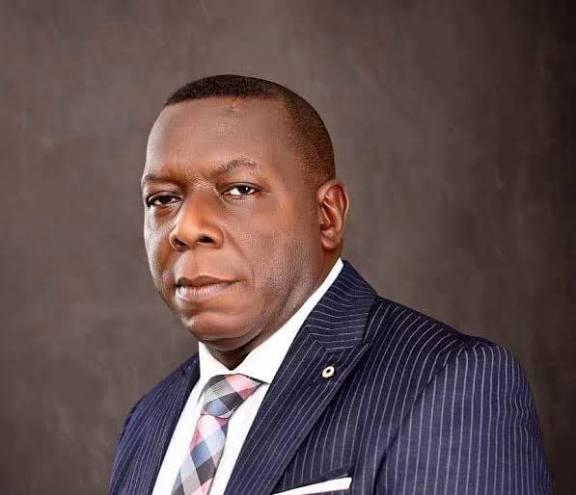By Eric Ifere
 Dr. Stephen Odey, Commissioner for Education, Cross River State
Dr. Stephen Odey, Commissioner for Education, Cross River State
The educational sector in Cross River State, particularly in the central and northern senatorial districts, is currently grappling with urgent and significant challenges. These issues, which disrupt the preparation and conduct of examinations and impact students’ ability to perform well, pose a threat to the overall learning experience and the state’s educational standards. The situation is dire and demands immediate attention to prevent further deterioration.
The future of our students and the development of our state are at stake. Areas mostly affected are the placement examinations for basic and senior secondary schools in the state, the Senior Secondary Certificate Examination (SSCE) offered by WAEC (West African Examinations Council) and NECO (National Examinations Council) as well as the qualifying examination for admissions into tertiary institutions, such as the UTME conducted by JAMB.
One of the critical issues disturbing the conduct and performance of students, particularly in the UTME in Cross River Central, is the severe shortage of adequate examination centres. This situation not only escalates the financial burden on students and their families but also disrupts their preparation and mental state, directly impacting their performance.
The absence of a UTME examination centre in the entire Yakurr Local Government Area is a clear contributor to the overall poor performance and low-grade scores of students in this area. All intending UTME students from Yakurr Local Government Area will have to travel to distant cities, including Ebonyi State, Akwa Ibom State, and Calabar, to take the exams, with the attendant hardship of making these journeys a day or more before the exams. This situation is not just a logistical issue, but a significant barrier to the academic success of these students.
Even where the UTME centres exist in other parts of the state, they lack well-equipped computer laboratories with efficient internet services, hindering candidates from competing effectively in the computer-based Test (CBT). This deficiency has a profound and severe impact on the candidates’ performance and the credibility of the examination process.
It may shock you to know that, in the Cross River Central senatorial district there is no WAEC Coordination Centre for examiners to carry out their briefing. This task is typically conducted in the state capital, Calabar, only, posing problems such as transportation and accommodation for examiners who are required to travel to Calabar on a meagre allowance provided for travel and boarding. This not only adds to the financial burden of the examiners but also disrupts their preparation and mental state, affecting their performance.
Apart from the coordination centre, there is no WAEC liaison office in the central senatorial district for schools to contact when needed. This has caused numerous administrative problems for school owners, principals, and students in general in administering the WASC examination.
Another area of concern is the absence of adequate facilities in our schools and a sufficient workforce to create a safe and conducive learning environment. Many schools lack basic amenities, such as clean water and functional toilets, which directly impact the health and comfort of their students. The lack of suitable classrooms, teaching staff, and the employment of unqualified teachers further exacerbate the problem. This not only deprives a significant portion of the population of quality education at the foundational stage but also hampers the overall
development of the state’s educational system as these pupils progress to higher stages. The plight of these students is a matter of grave concern and should stir our collective conscience.
The Cross River State Ministry of Education is responsible for overseeing educational institutions, managing resources, and promoting educational development within the state. However, the ministry pays less attention to its role, especially in conducting state examinations and ensuring good performance from the students. The absence of this oversight is a significant issue that requires attention. It not only undermines the integrity of the state’s educational and examination processes but also allows for potential malpractices to go unchecked. This is a clear indication of the need for better governance in our educational system.
In all of these, it is the students and teachers who suffer the most. Despite being entrusted with the arduous task of facilitating learning by disseminating knowledge, nurturing skills, and fostering students’ overall development, the teacher is made to work under poor working conditions and inadequate welfare packages. As a result of the poor working conditions of teachers, pupils and students bear the brunt and receive insufficient supervision and coaching. Many teachers absent themselves from their duty posts to pursue other businesses that offer higher pay or supplement their low pay packages.
To improve the state’s educational system, the government must take a proactive approach and address all the issues that have hindered academic development. This could include increasing the number of examination centres, ensuring the availability of well-equipped computer laboratories, establishing WAEC liaison offices in all senatorial districts, and implementing measures to prevent the misappropriation of
funds in the educational sector. These changes are crucial considering the importance of education to the state’s overall development.
Eric Ifere is an attorney
